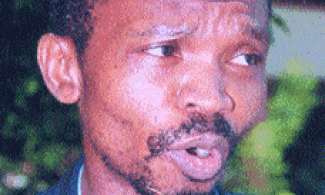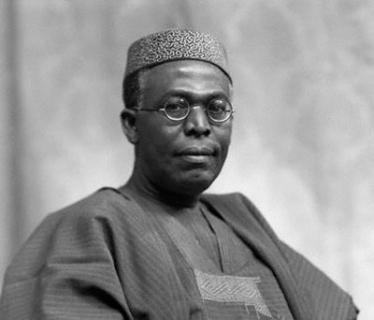
We can confidently judge the core of the beings that have stayed at the Dodan Barracks or Aso Rock- based on our perceptions because we have cracked their characters open.
There are some beings, however, whose portraits stir people to wish, ‘what if this person was president?
In certain climes where the purchasing power parity is reasonable, a dented apple is only fit for the bin and not the groceries of the shopper. If leaders were chosen based on the depth of smudge or twist on their character, some countries might not have any captain for decades. It is not too impossible that there are as many dented personas as there are dented apples, only a statistician can tell us.
Noticing a mark on an apple is easier than spotting one on a being occupying a position is draining as President of the Federal Republic of Nigeria. There are certain fruits that need to be opened before you spot a sign of rot.
We can confidently judge the core of the beings that have stayed at the Dodan Barracks or Aso Rock- based on our perceptions because we have cracked their characters open.
There are some beings, however, whose portraits stir people to wish, ‘what if this person was president?’
Below are some 12 names
Herbert Macaulay

Herbert Macaulay was not of impeccable character according to public records. He had the one key gene of a leader though, the ability to glue different strata of society. Macaulay was born into the prominent family of Thomas Babington Macaulay and Abigail Crowther- son of Ajayi Crowther- famous Anglican bishop. Macaulay’s academic stint abroad was funded by the colonial office, yet he grew to be a formidable enemy to their course. Badmos Macaulay used his position as a socialite to fight for the respect of the House of the Lagos Oba and the independence of the country. His Nigerian National Democratic Party (NNDP) won all available elective seats in three elections, despite Macaulay being barred from contesting elections. He Created the National Council of Nigeria and the Cameroons (NCNC) in 1944 with Nnamdi Azikiwe- who later became the ceremonial president of the country. Macaulay died two years later in 1946- 14 years before Nigeria’s presidency.
Aminu Kano

If there is any Northern/Muslim member of either the seventh or eighth Senate that would have voted for the adoption of the United Nations Convention against the Discrimination of women, it is Mallam Aminu Kano. He was born in 1920 and died in 1983. Within the six decades of his time on earth, Aminu Kano challenged the Northern Native government- which was at that time dominated by people of Fulani extraction. He canvassed for an egalitarian society and advocated for the taxing of the rich. His support came from the commoners and petty traders. Just like Macaulay, Aminu Kano was a bonding character. He was one of the first generation of Nigerians to conceive of the creation of politics without ethnic fault-lines. Aminu Kano served as Federal Commissioner of Health under the Yakubu Gowon regime- 1967 to 1975. He contested for the office of President under the Peoples Redemption Party (PRP) in the 1979 poles.
Dangiwa Umar

Umar is one of those rare beings that faced the cannon and took the more difficult choice. He was born in 1949 and still lives. In 1993, RTD Colonel Dangiwa Umar resigned he’s commission in the Nigerian military, in an attempt to restore the mandate of MKO Abiola. He searched for support to achieve his mission within the Nigerian army but ultimately failed. That selfless effort got him detained on charges of conspiracy in October of 1993 but he skidded out without a sentence. Umar, who served as Governor of Kaduna state between 1985 and 1988, has remained a social critique since the Fourth Republic. He famously accused former president, Olusegun Obasanjo for being complicit in June 12, 1993 presidential election annulment. He is one of those who have said the government should dialogue with the Boko Haram terrorists.
Ndubuisi Kanu

Just like Colonel Umar, Ndubuisi Kanu is one of those top military officials who opposed the usurpation of power by Abacha in 1993. Kanu was born in 1943 and still lives. Between 1976 and 1978, Rare Admiral Kanu served as governor of Imo and Lagos States. He is an advocate for the amendment of the Nigerian constitution to reflect a true federal system of government. Kanu blamed the restiveness in the Niger Delta region on the absence of regional governance.
Tai Solarin

Solarin is one of those dogged beings that never veer off course in their beliefs and struggles. Solarin, who was born in 1922 and died in 1994, was an educator and daring ink fighter. He was neither a politician nor a member of the country’s security apparatus. Solarin’s views would have seemed an anathema to many Nigerian voters, as he was an atheist. This would have given the impartiality to deal with the trappings of tradition and religion that have tethered the development of the Nigerian state.
Solarin, a regular caller at Nigerian prisons, was famously arrested this one time, for distributed a pamphlet titled the ‘beginning of the end,’ to force Yakubu Gowon to hand over power to a civilian regime in 1975.
Chima Ubani

Like Taiwo Solarin, Chima Ubani was neither a politician nor member of the military. Ubani, one of those hardened activists who did not permit any government airs to go unvisited, was born in 1963 and died in a car crash in 2005. Ubani created the Campaign for Democracy movement in 1993 in response to the annulment of the elections by Ibrahim Babangida. He became an Amnesty International prisoner of Conscience, after his arrest by the Abacha regime in 1995. Ubani survived this ordeal and resumed his normal routine when Obasanjo returned in 1999. His greatest imprint is the halt on the indefinite detention of citizens by security forces. Ubani was on a campaign against fuel price hikes when his car somersaulted in what an investigation published in 2007 describes as suspicious.
Anthony Enahoro

Anthony Enahoro was the first individual to move for the independence of Nigerian of the floor the parliament in 1953. His motion did not receive support but led to a cascade of more motions which forced the colonial clasps open. Enahoro was born in 1923 and died in 2010. At age 21, he is said to be the youngest editor of a Nigerian newspaper- the Southern Defender in 1044. This fit was attained at a time when the press was food for the independence struggle. More remarkably, Enahoro was still a student in Kings College Lagos at the time. Enahoro, a two-time minister, is one of those independence heroes who never won an election when independence was attained. Ironically, he served as a Minister under Yakubu Gowon’s military regime.
Michael Okpara

If Michael Okpara was alive to serve as President of the Federal Republic of Nigeria, it is highly probable that his hands would never have been found sticky with crumbs from the cookie jar. The medical doctor
and agricultural reformist was born in 1920 and died in 1984. Okpara is believed to have never owned a house of his own during his time in different government positions- 1952 to 1966. Okpara is the only of
the three regional premiers- North, West and Eastern regions to have survived the first military coo of 1966. He is famed for bringing reforms to the Eastern region during his time as Premier. If Okpara was president, he probably would not have permitted the abandonment of the agricultural sector by the discovery of hydrocarbon. Ahead of his return from exile in 1979, his associates raised a collection to build him a house in his hometown in today’s Abia State.
Ernest Ikoli

It is an omission of history to speak of the struggle for independence and not mention Ernest Ikoli. Ernest Ikoli was born in 1893 and died in 1960, the year when his life’s worth was achieved. Ikoli was one of the founders of the Nigerian Youth Movement which wrestled power with Macaulay’s NNDP in Lagos. Ikoli represented Lagos in the 1942 legislative council. Just like Macaulay, Obafemi Awolowo, Nnamdi Azikiwe and most of the Nationalist fighters, Ernest Ikoli saw the media is the best channel of communication with Nigeria’s colonial oppressors. Ikoli started with being the first editor of the Daily Times. He soon founded the African Messenger as well. Ikoli is an insignia of those times when genuine leaders used the press in an unbiased selfless course.
Isaac Boro

Isaac Boro is one being that divides perceptions across Ijaw and Igbo fault lines. He was born in 1938 and died in 1968 during the civil war. Boro was an undergraduate and student union president in the
University of Nigeria Nsukka, when he formed a militia group- the Niger Delta Volunteer Force (NDVF). He declared the Niger Delta Republic in February 1966 and engaged the Nigerian state in a 12-day armed
struggle. Boro and his militants were subdued and cut a deal with the federal government before the civil war began- a deal that was vital to the defeat of the Biafran army. He was an active soldier with the Federal Republic of Nigeria before his ‘mysterious’ death. Boro’s grouse still remains unsolved today. He fought against the exploitation of petroleum resources from the Niger Delta to the detriment of the lands been exploited. Boro is from Oloibiri, where the first commercial oil well was drilled. The well has since dried up and the community is in shambles.
Ahmadu Bello

Ahmadu Bello was born into provision but understood how to use it. Born in 1910, to the Uthman Danfodio lineage, He was killed in a coup in 1966, which triggered the slaughter of over 40,000 persons of Igbo extraction.
Ahmadu Bello’s blueprint was to industrialize the Northern region and keep them at par with the West and East. In order to keep this dream alive, he relinquished his office as Prime Minister to Abubakar Tafawa Balewa, then Deputy Leader of the Northern People’s Congress (NPC) in 1960. Bello tried to maintain the traditional Quranic schools by giving them a modern education outlook. His dream was to have a quality school in every Northern Province. His drive to have the North industrialized, is summed up in his removal of persons of European and Southern extraction from political offices in the North. If Ahmadu Bello saw Nigeria and he saw the North and reigned as president, a legacy of growth and prosperity would have been the probable outcome.
Obafemi Awolowo

The son of a farmer was a self-made man that rose to become a respected leader of the Yoruba nation. Born in 1909, the legal luminary stayed active in Nigerian politics till his death in 1987. As Premier of the Western region, Awolowo aggressively promulgated a socialist policy that saw the use of taxes and monies earned from cocoa production to promote access to education within his province. That singular policy created a generation of educated Yoruba elites. After his release from prison- following the constitutional crisis of 1963, Awolowo played a key role in managing the financial operation of the civil war-1967 to 1970 as well as the settlement of scores between former Biafrans whose assets were confiscated and the Nigerian government. Obafemi Awolowo made three unsuccessful attempts at becoming Nigeria’s president. With his firm stance on federalism and strong financial acumen one of his breed is conspicuously absent in today’s leadership of the country.
Those are the not so spotless Nigerians that might have left indelible positives on Nigeria’s governance.